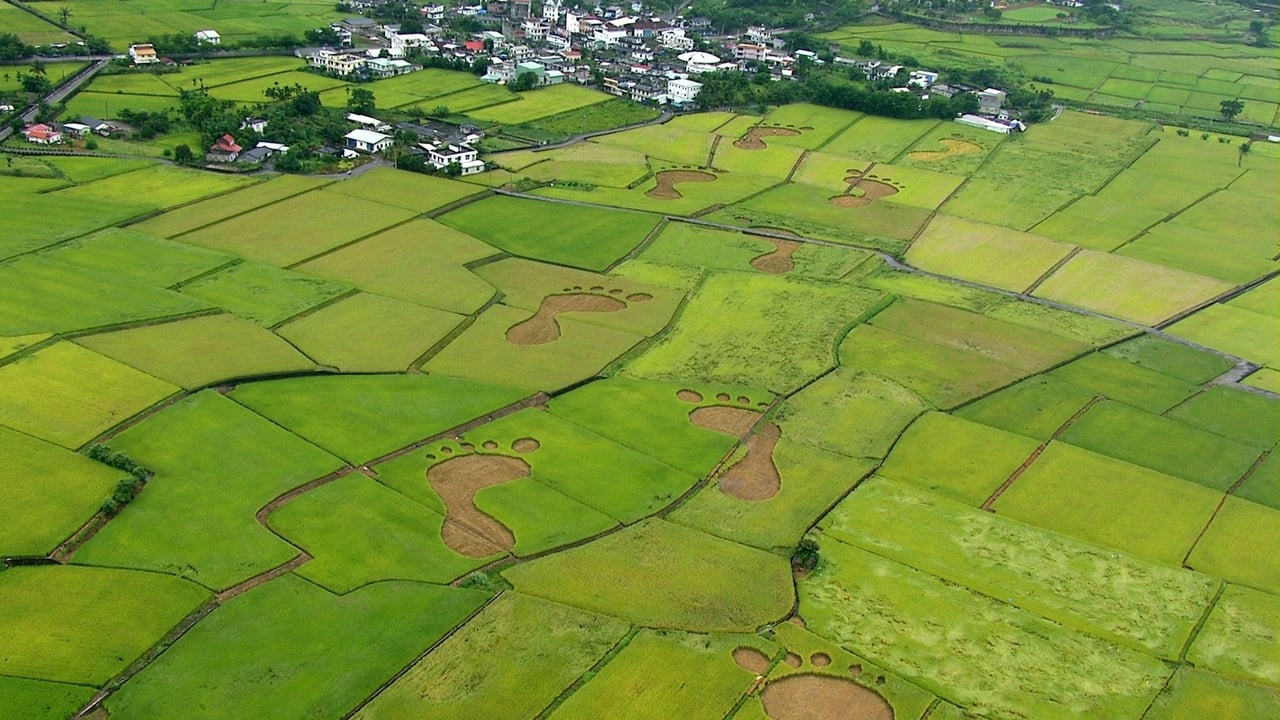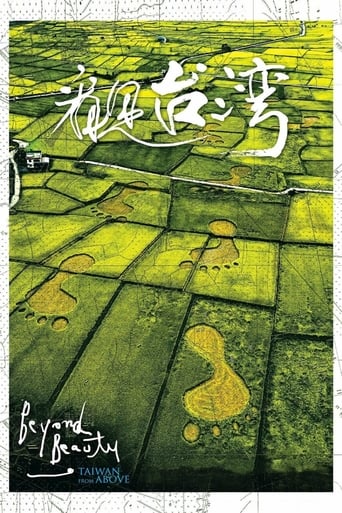

I was not aware of this documentary until recently. I went back Taiwan to see my ailing mother one last time and my sister-in-law mentioned it to me. I was able to find it online after I came back . What a astonishing treat!Taiwan has been gradually changed in the past three decades while I was away. I am certain for the better. I grew up in 70' and 80' while the economic miracles were happening and citizens on the island were suffering through environmental detriments. This film is a testimony of that. Now we bear the great responsibilities to leave a clean planet to our children. We need not to take it lightly. I am reassuring this film presented insight of it.I wondered why this film did not gain world wide attentions. The subjects might be somewhat sensitive to the public images of Taiwan. In the traditional sense of eastern cultures, we don't do dirty laundries in front of others. Nevertheless, most people living on this plant share the common environmental consensus now. We should not be shamed of what we have gone through and look for the better future.I am saddened by the death of the film maker. Maybe this film ought to seek to be released on Netflix. I would think people might like to have a glimpse of such an island carrying a long and highly developed civilization.
... View MoreLiving in this part of the world, Taiwan shouldn't be an unfamiliar tourist spot for us. Beyond our Facebook and Instagram photos with somewhat ridiculous sounding hashtags like #ILoveTaiwan and #TaiwanHoliday, how much do we really know about the East Asian state which has an area of 36193 square kilometers? Beyond the metropolitan area of Taipeiwhere you devour your enormous chicken fillets and oyster mee sua, how much do you know about the island formerly known as Formosa? In this day and age where we move faster than we think, is there relevance in understanding a country's heritage and history?Both a commercial and critical success, this 2013 documentary film has made its way to Singapore, and amidst the breathtaking visuals, it asks some important and somewhat grave issues which we, collectively as a human race, has chosen to ignore for the longest time. The 93 minute feature length production documents Taiwan completely in aerial photography. It is a tribute to Taiwan's natural beauty (something not many of us are aware of), and gained attention back home when it earned NT$11 million (S$458,336) in its first three days at the Taiwanese box office, a record opening for a documentary in the territory. The film went on to win the Best Documentary at the Taipei Golden Horse Awards, before making its way to several international film festivals.Directed by Chi Po Lin, a former civil servant turned aerial photographer, produced by prominent Taiwanese filmmaker Hou Hsiao Hsien and narrated by respected personality Wu Nien Jen (we love the script has a Chinese old school poetic romanticism), the film's first 10 odd minutes blows you away with its unbelievably awe inspiring shots of Taiwan's various well known spots. It begins to feel like a tourism promo reel, with Singaporean composer Ricky Ho's magnificent and operatic score. You feel a little overwhelmed (all the while wishing you have the opportunity to visit Taiwan soon to snap similar photos and share them on your social media platforms), and begin to wonder where this documentary is headed.Then it strikes you hard – the film begins showing you how human greed and negligence has damaged the island's beauty. You see how irresponsible environmental crimes affect Taiwan's mountains and coastline, and how this supposedly natural disasters like floods and landslides (which Taiwan often experiences) is nothing more than a result of human actions. You feel a little guilty because you remember wanting to enjoy mountain grown vegetables and sip mountain tea while staying in European inspired inns, just because travel brochures tell you it's the best way to enjoy Taiwan, and to a certain extent, to appreciate life. The documentary explains to you, in simple geographic terms, how this obsession with economic expansion may one day lead to the country's downfall.Yes, you may feel that the film is starting to get preachy, dishing you with environmental messages that you already know from elsewhere. But nothing works better than showing you visuals that leave you dumbfounded and shocked – an effect that's more far reaching than a horror movie. The chilling thought that the terrifying images you see on screen are due to fishermen, farmers and businessmen's doings is one you have to experience to understand the dire situation. This documentary may be Taiwancentric, but we all know this is a universal issue that needs to be dealt with urgently.Thankfully, the last 20 minutes of the film reminds us there is hope yet. When the film closes with one of our favourite on screen visuals this year – a choir singing an aboriginal tune on Yu Shan, Taiwan's tallest mountain peak, you'll step out of the cinema wanting to do your part for conservation. Next step, which is of utmost importance, is to actually making a conscious effort to protect this planet we call home.
... View MoreThis documentary uses custom composed music with all aerial photography to convey Taiwan's beauty. The sheer scope of scenes from urban, suburban, rural, water, ocean, rivers, gorges, mountaintops (4000m heights, even), grasslands, rice terraces, etc. bring the user through an arc similar in feeling to BBC's "The Earth".An interview with the director on NTDTV brought this film to my attention. Despite having spent 1.5 years in Taiwan for family, I'd never known my homeland to have had such intense beauty. While the scenery may have been brightened and sharpened, the sheer variety and scale of the beautiful scenes kept me captivated.Custom composed music is soaring and inspirational in tone with great. Even in passages regarding Taiwan's environmental woes (overbuilding, waste, rising sea, earthquake damage, overwhelmed landfills, many exist), music suggests a hopeful sentiment, a prevailing Taiwanese attitude. Narration finishes the film's spirit that Taiwan is a special and unique land whose beauty is mostly unknown even to Taiwanese & Taiwanese-Americans themselves.Overall, this Golden Horse award winning documentary was greatly inspiring for both spirit, knowledge & tourism.
... View MoreI went to see the documentary simply because I wanted to support the director's ideas and efforts. He spent lots of time and money filming the first aerial documentary in Taiwan. Before I entered the theater, I thought it's nothing but a collection of astounding pictures from above. After I stepped out of the theater, I realized it's a reminder of the damages people made intentionally. Not only the Island but also Mother Nature has been suffering from the deprivations of human beings for a long time. People will not be shocked until they see the movie. Once we see how weak Mother Nature is, we will stop hurting the precious land step by step. I highly recommend the documentary to those who have environmental awareness. But don't expect any solutions from the director.
... View More